The Rose Garden Boutique Hotel, designed by JSPA Design, is located in Daixi, a small town between Huzhou and Hangzhou in Zhejiang province. The site was formed by a gentle slope at the bottom side of a hill covered with tea fields and surrounded by bamboo forests.
Rose Garden Boutique Hotel Technical Information
- Architects1-2: JSPA Design
- Location: Zhejiang Province, Huzhou, Wuxing district, Daixi village, Rose garden, China
- Topics: Wood in Architecture
- Client: Four Season Rose Garden
- Site area: 160.000 m2
- Gross Floor area: 700 m2
- Project Year: Design 2018 – Construction 2019
- Cost: 5 Million RMB
- Photographs: Courtesy of the Architects
The project’s architecture works with the archetypal form of the house: a unique volume covered with a pitched roof of traditional tiles. This volume is then perturbated by the addition of four prominent steel boxes.
– JSPA Design Architects
Rose Garden Boutique Hotel Photographs
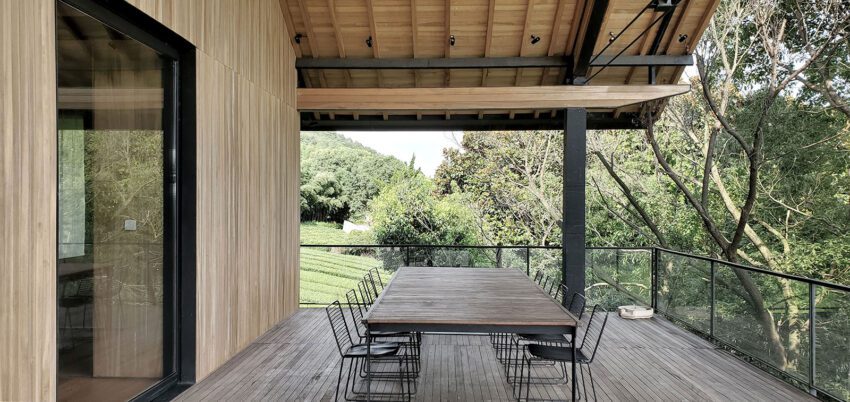
Text by the Architects
The project consisted of creating a rose plantation used for cosmetics production along with a hospitality program, including a SPA, a hotel, and the Rose Museum.
The first phase started with a small building with few rooms and public spaces from which the rest of the project will be developed—a place where the site will be apprehended and understood.
An old farm with its traditional Zhejiang rural architecture was already on site, and we chose to preserve this existing building and settle the project next to it.
The idea was to try to understand the old local construction techniques and materials to find a rational and efficient way to build in this area and anchor the project in its site.
The project is settled perpendicularly to the existing farm to create a dialogue between the two buildings while a terrace and a swimming pool connect the two entities.
The project’s architecture works with the archetypal form of the house: a unique volume covered with a pitched roof of traditional tiles. This volume is then perturbated by the addition of four prominent steel boxes. The first of them, an eight meters high steel frame, cuts the building open and creates an exterior circulation space: a flight of stairs leading to the second floor and an outdoor gallery.
Three other steel boxes organize the façade and manage the relationship between the interior and exterior. They create intimate alcoves going out of the building and framing the surrounding landscape.
The ground floor is made of rammed earth and hosts the four rooms of the project. This heavy material provides good thermal and acoustic insulation while creating an interesting texture left visible on the facade and in the rooms. It is a rational contemporary way of building and a subtle reference to the local architecture.
On the second floor, meeting rooms and living spaces are settled. The building becomes lighter and uses wood for the facade. The wooden parts of the façade are the ones allowing to create openings: on the first floor, they become doors to enter the rooms, and on the second floor, they take the form of shutters allowing natural ventilation and the total opening of the space to the outside.
The roof structure uses a combination of steel and wood to allow a long span and create a high volume for the project’s public spaces, with the wooden rafters and steel profiles left visible. A large covered terrace is created on the south side, offering an open view of the surrounding landscape.
Rose Garden Boutique Hotel Plans
Rose Garden Boutique Hotel Image Gallery
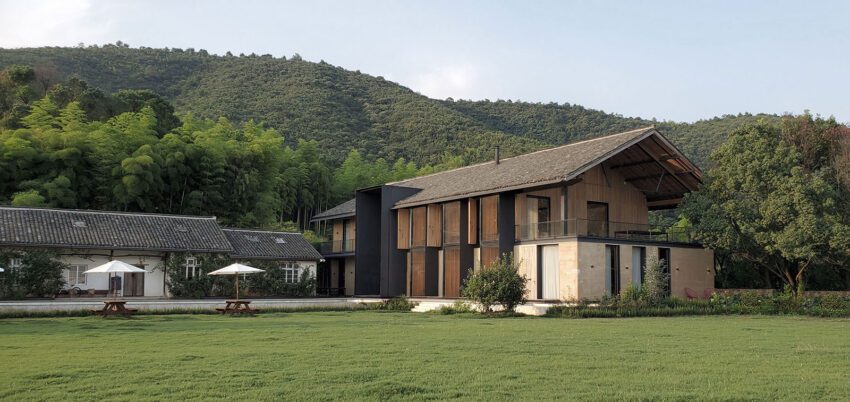
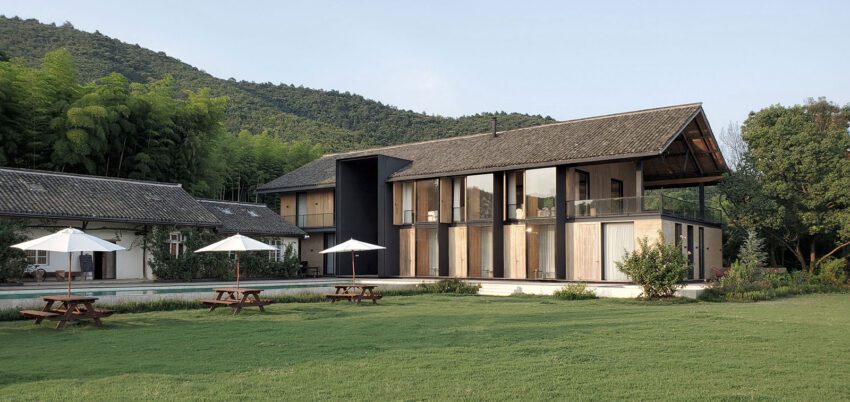
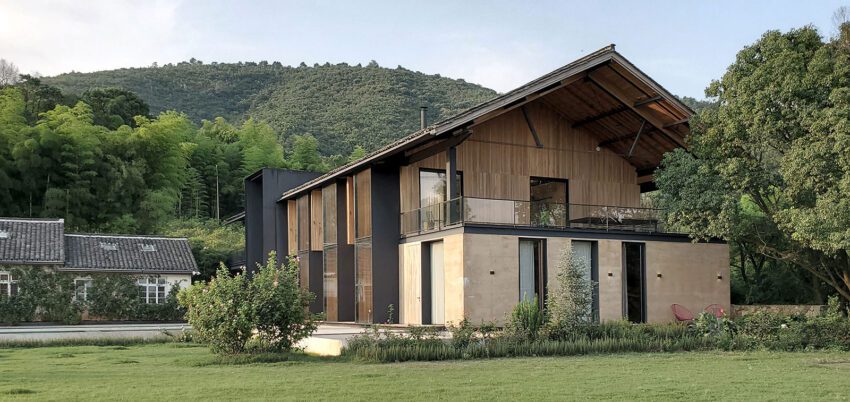
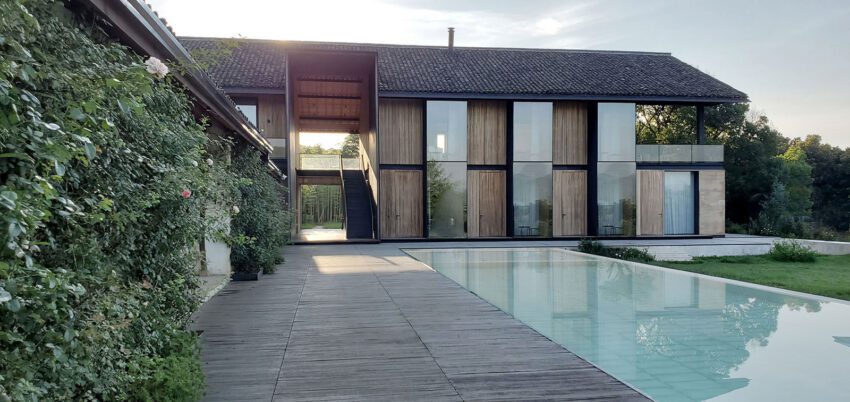
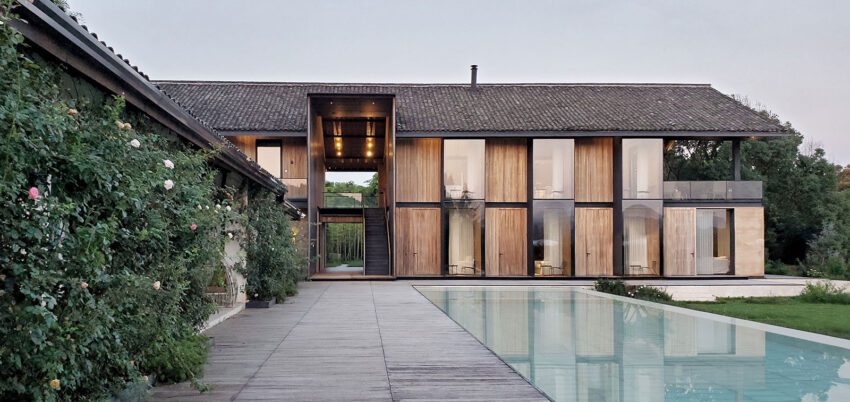
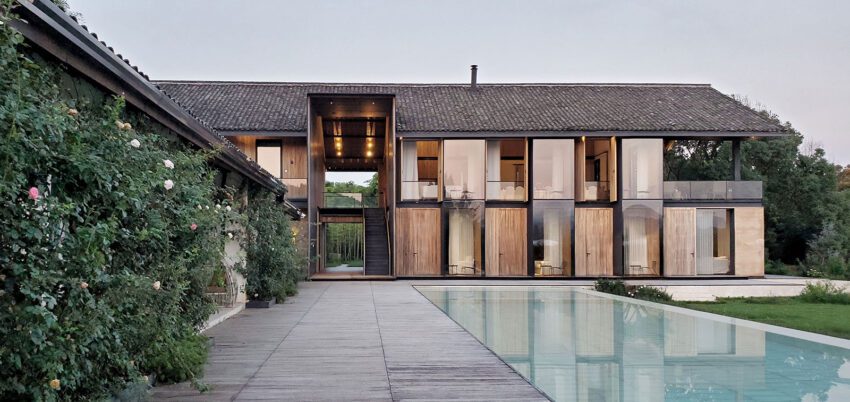
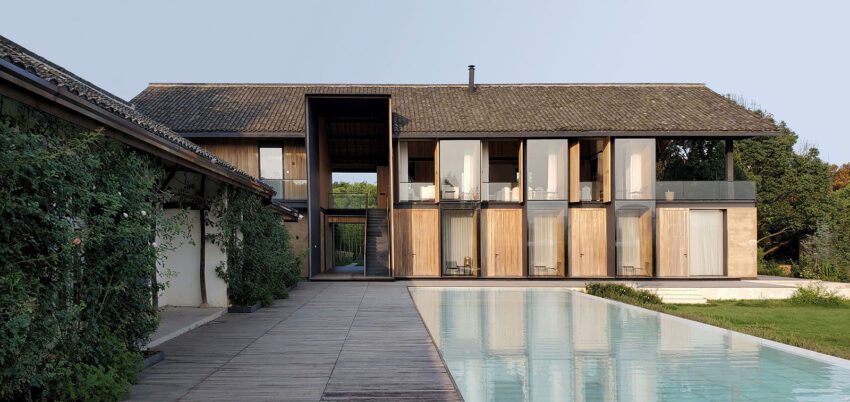
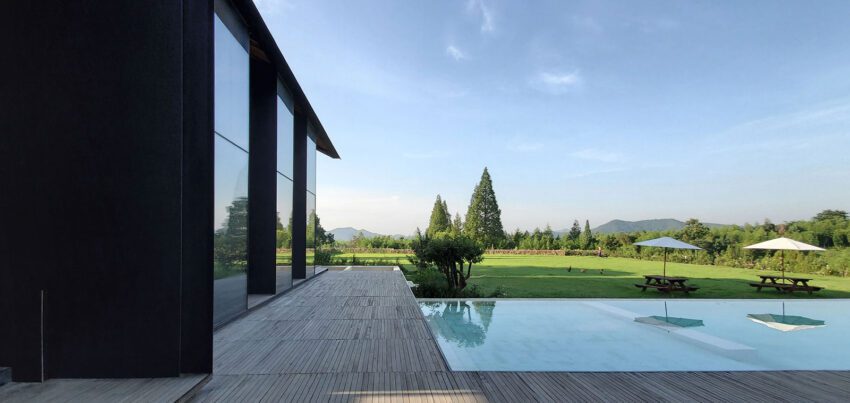
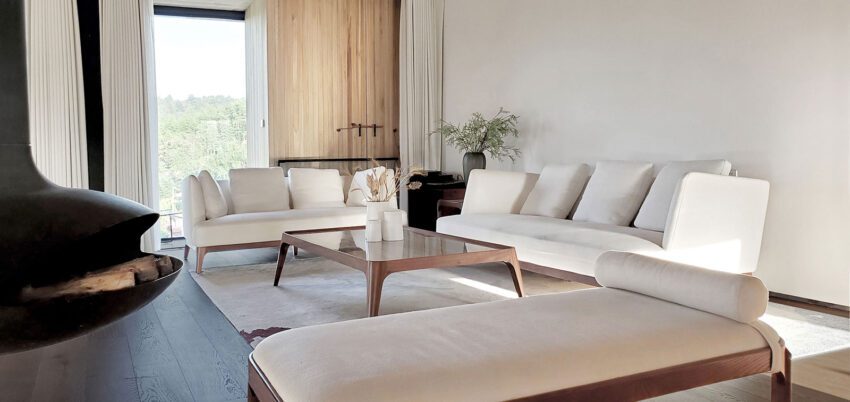
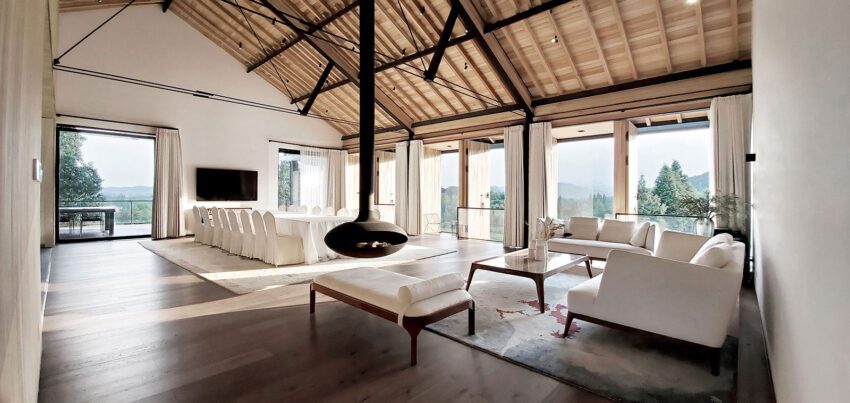
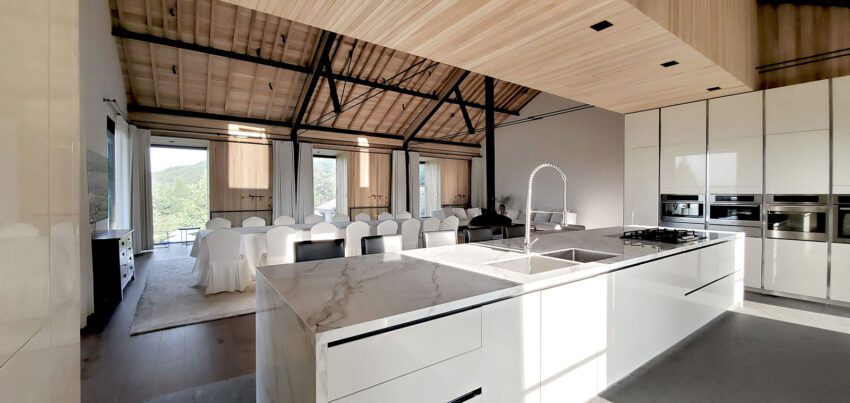
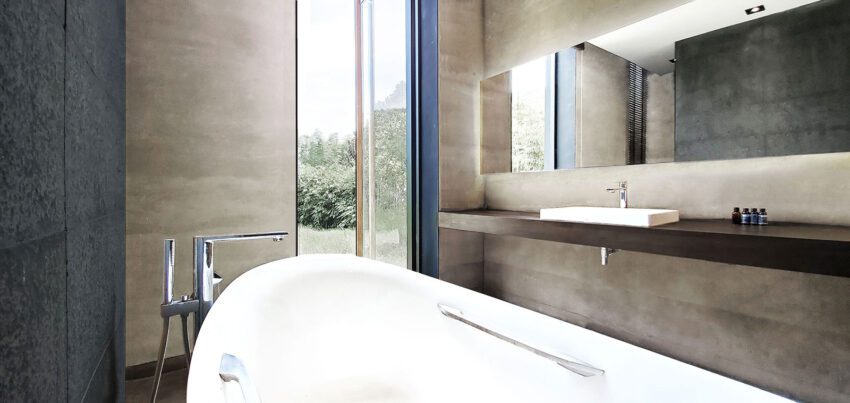
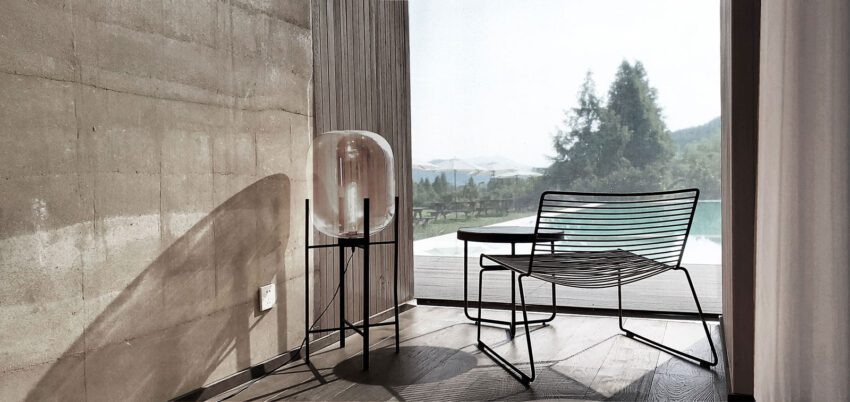
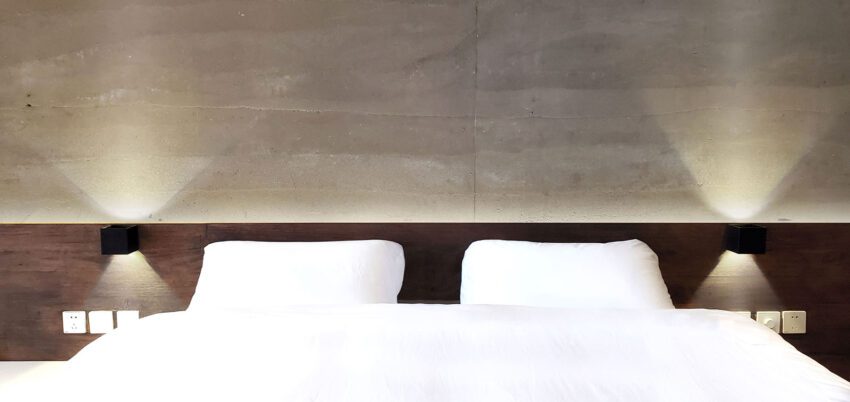
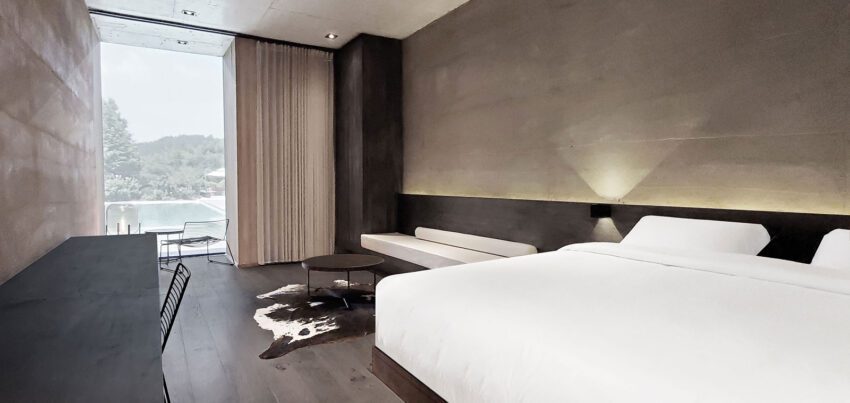
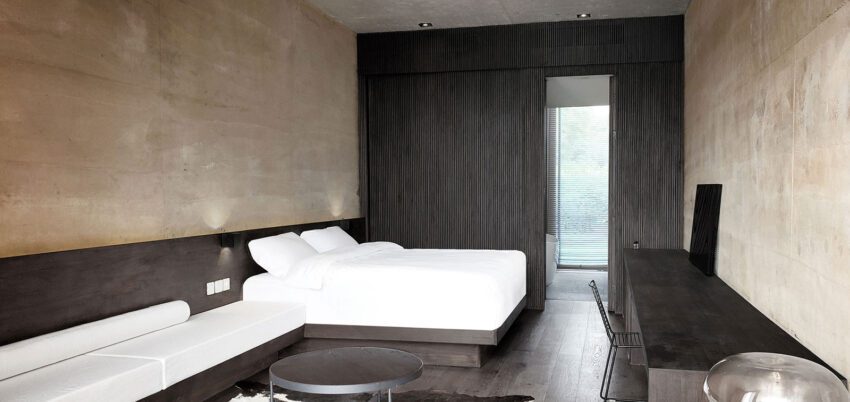
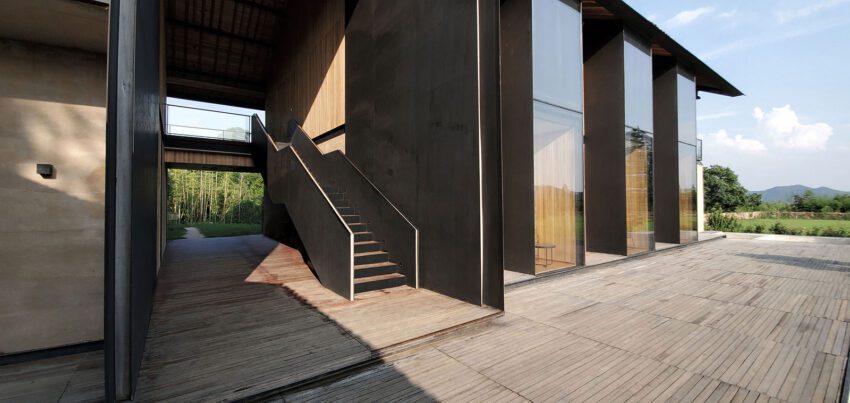
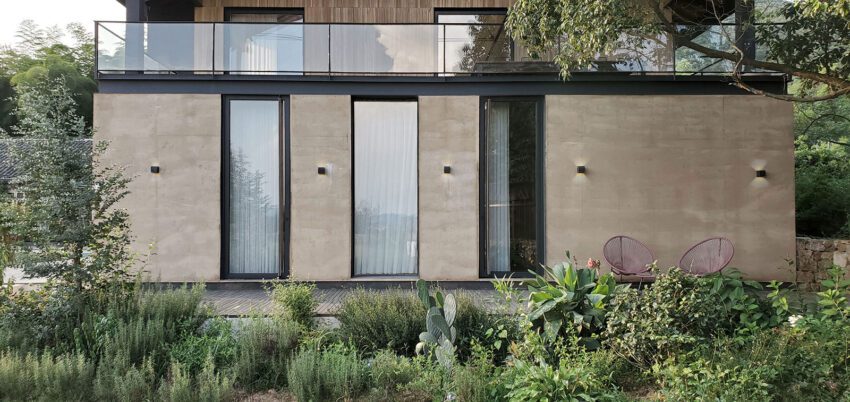

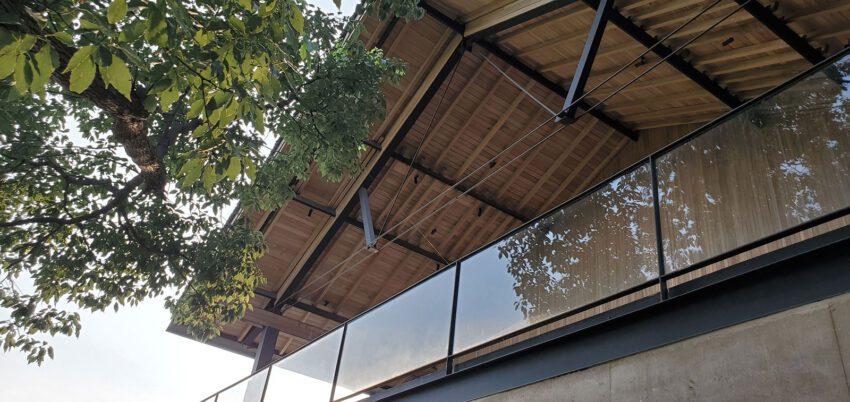
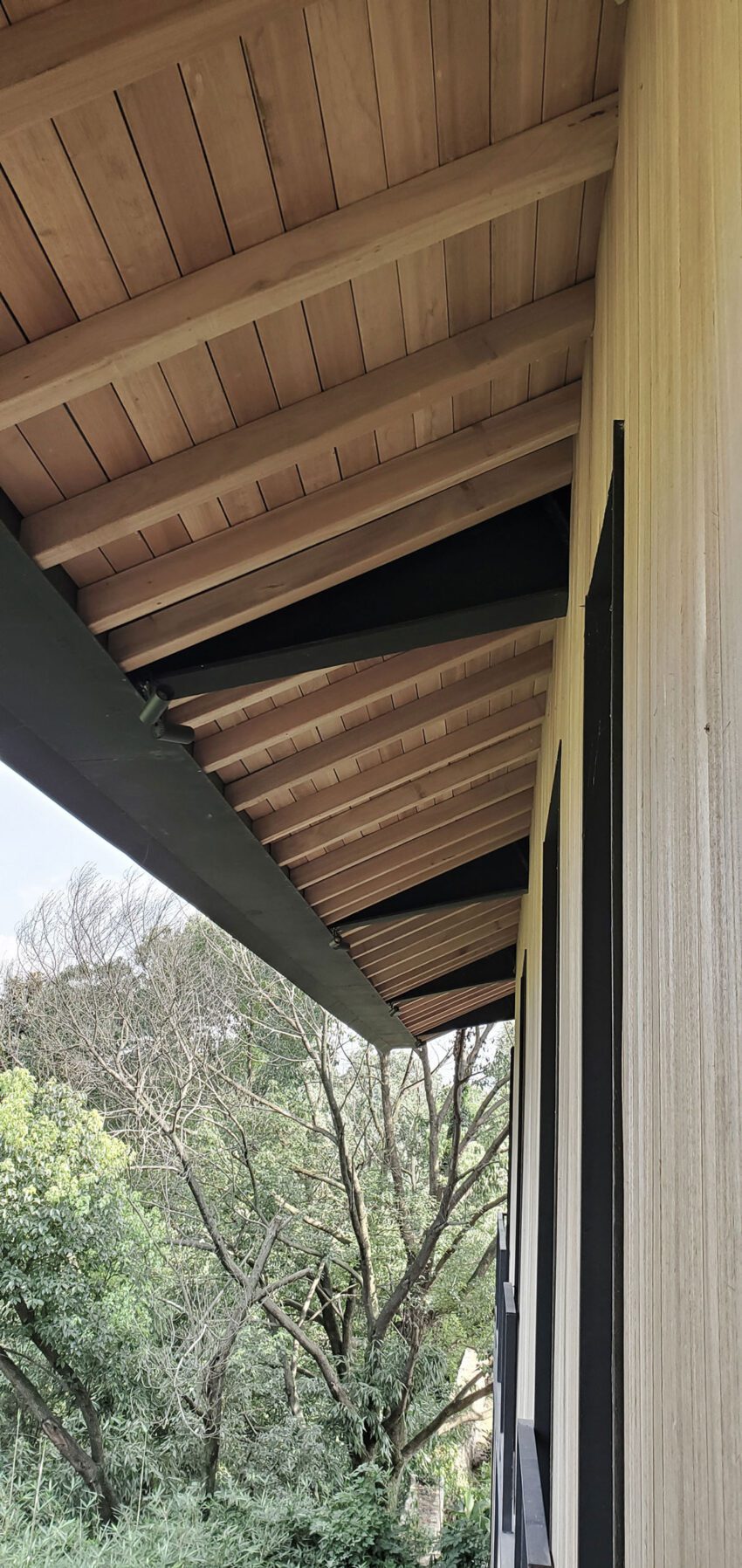
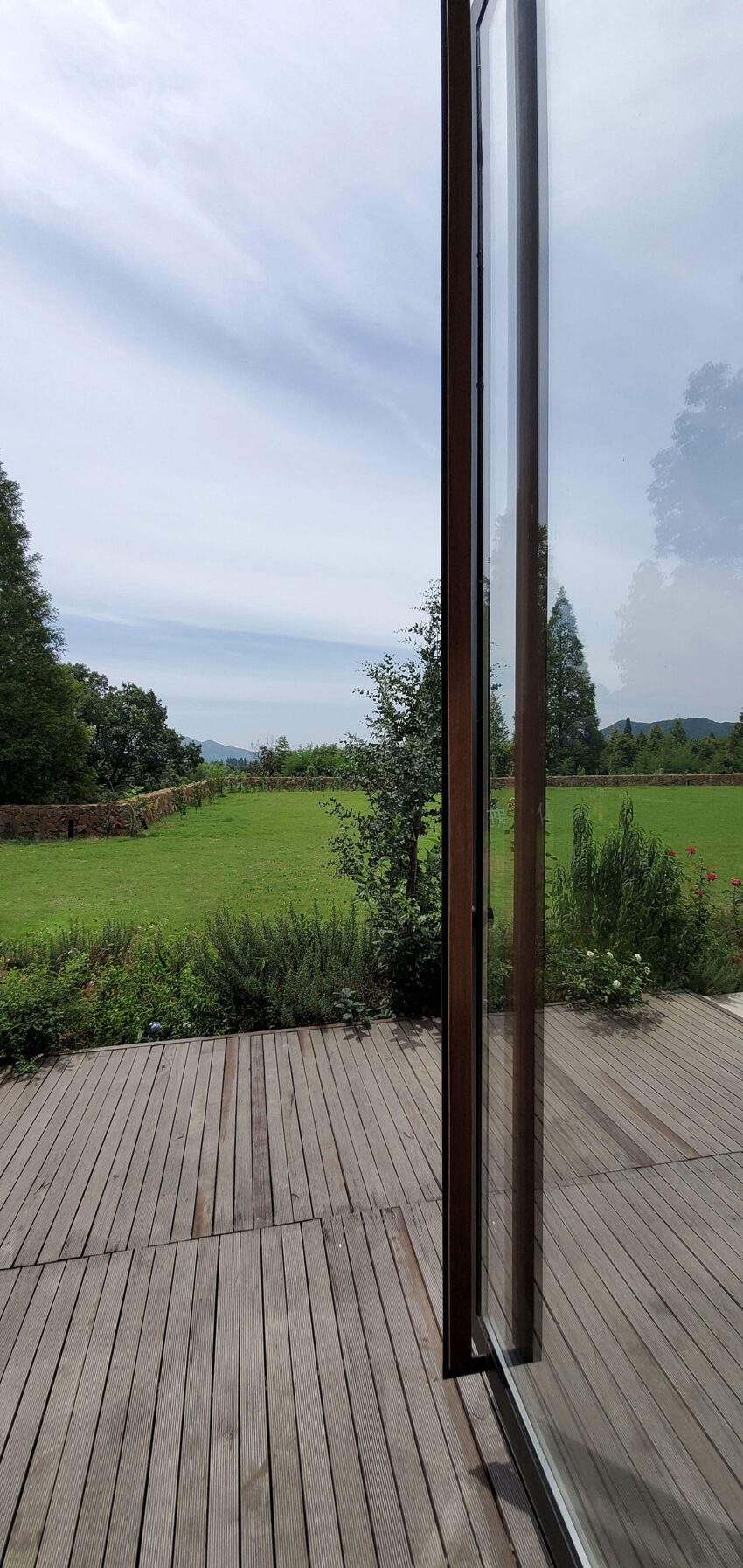
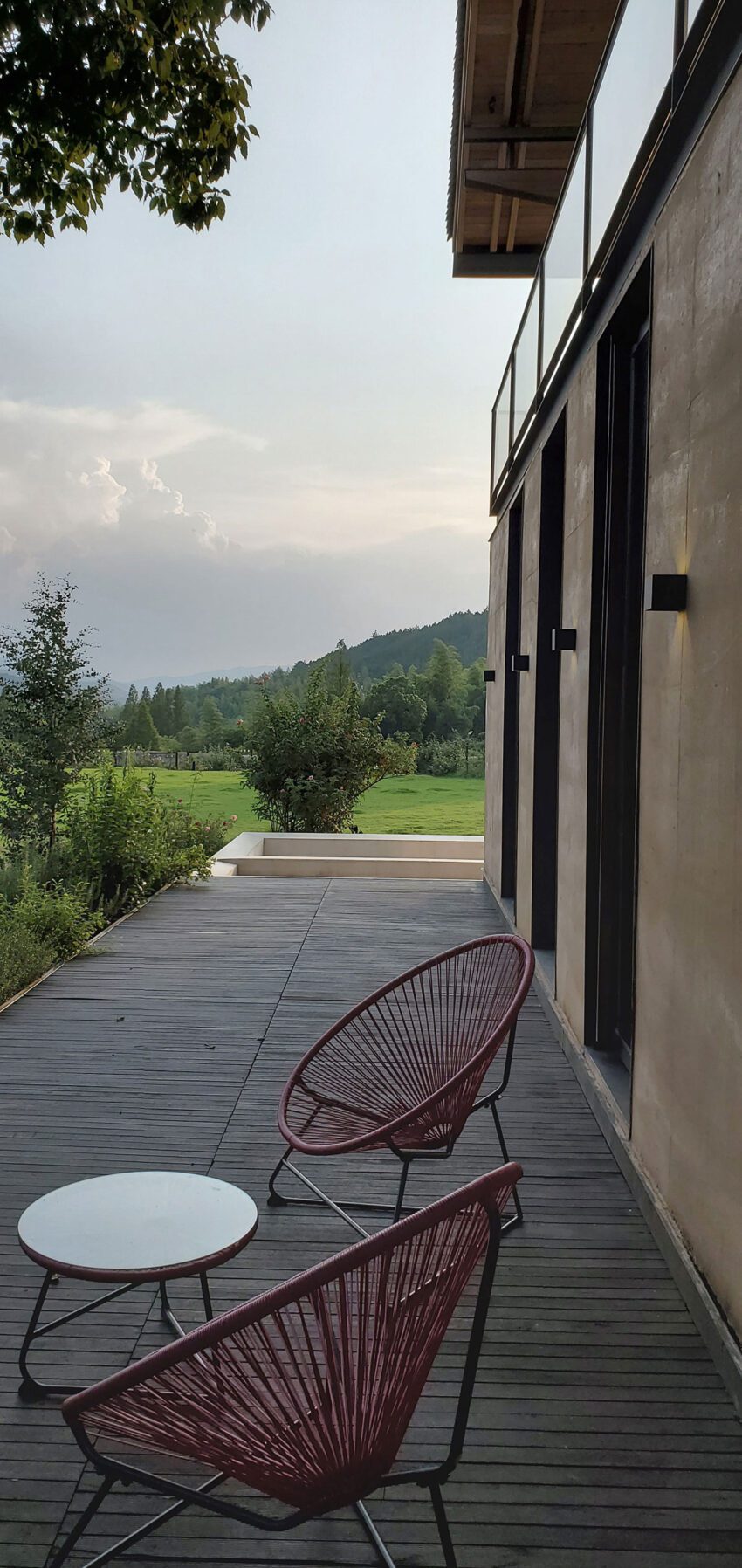
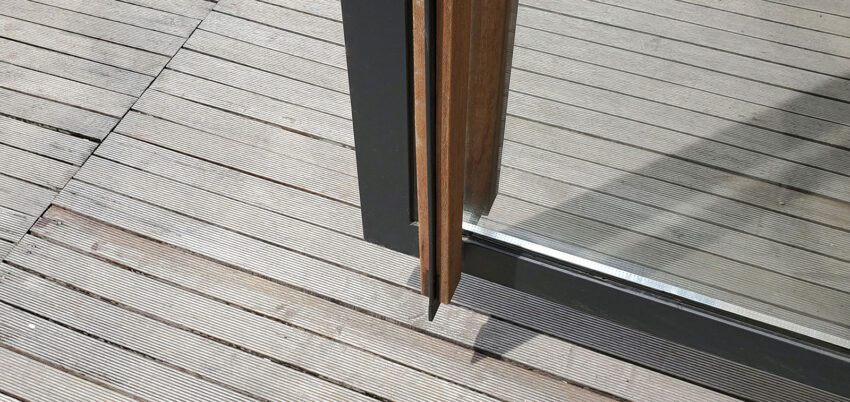
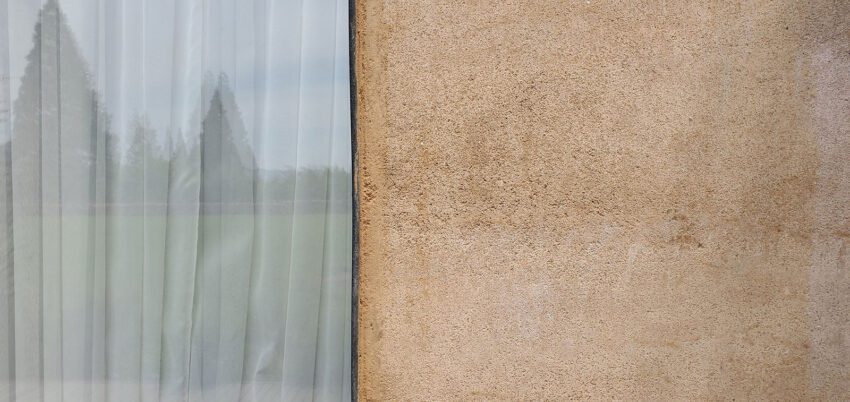
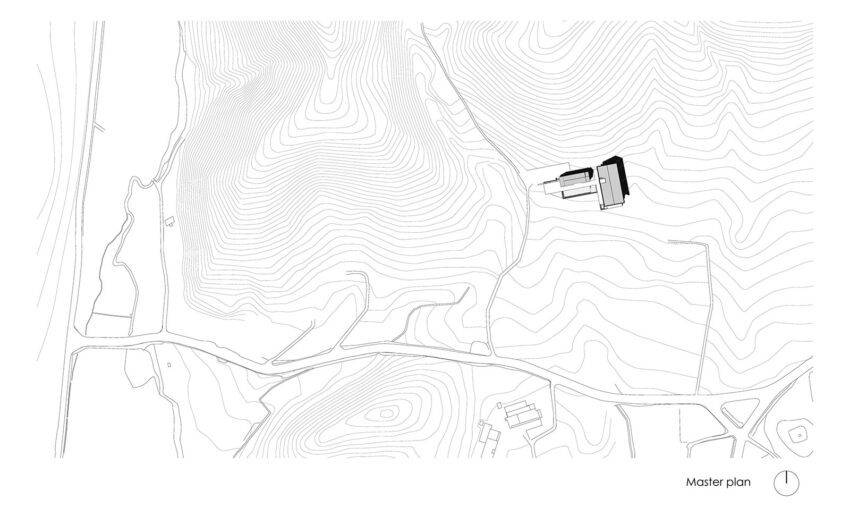
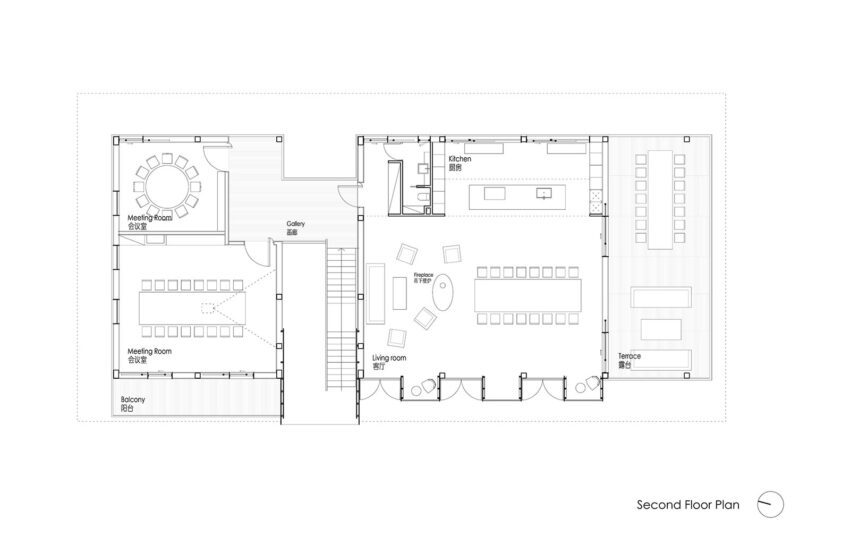
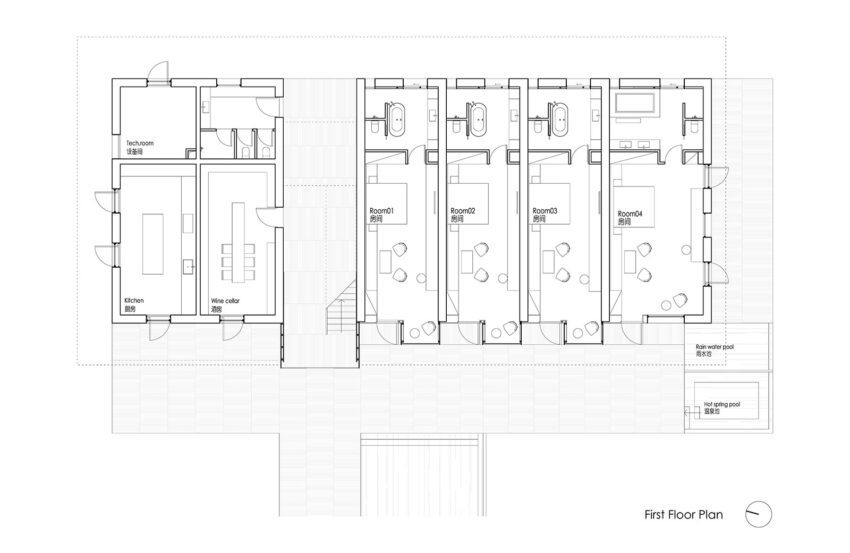
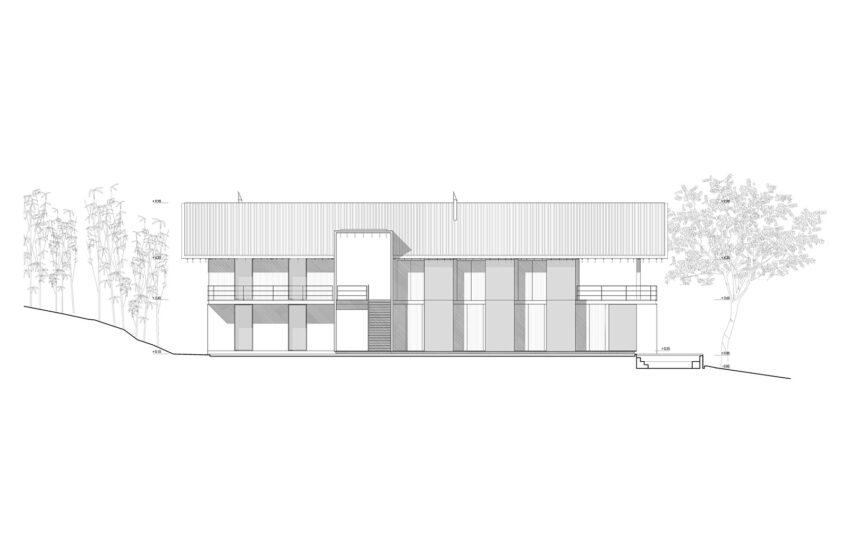
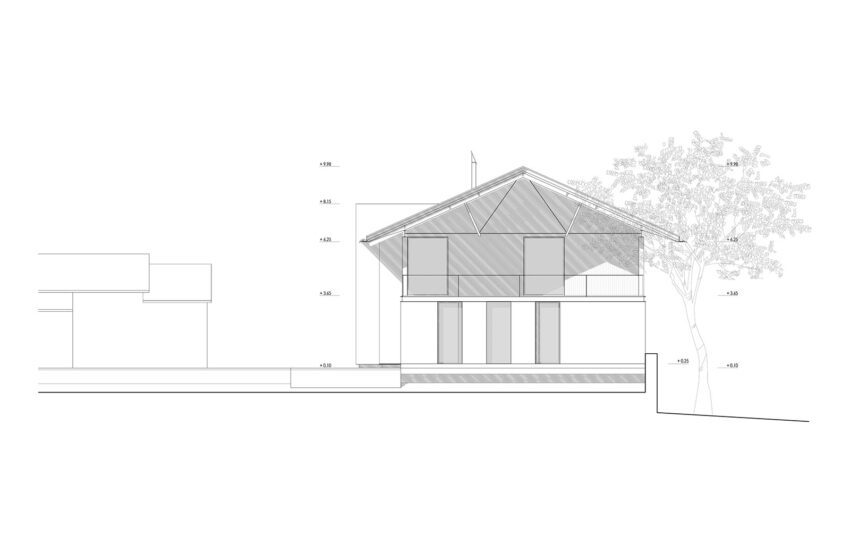
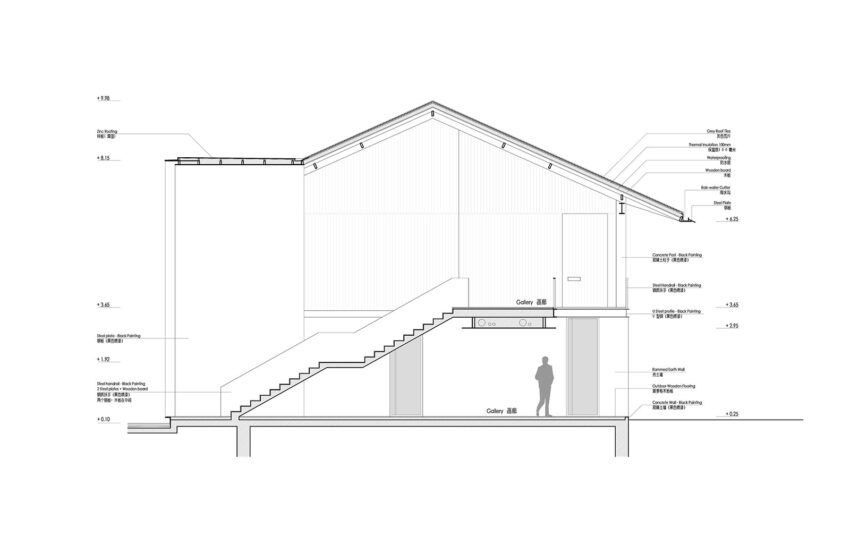
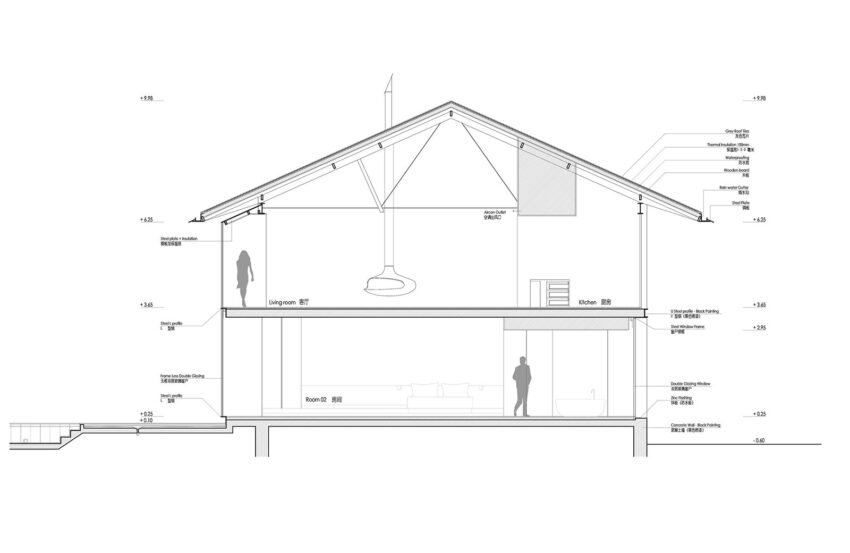
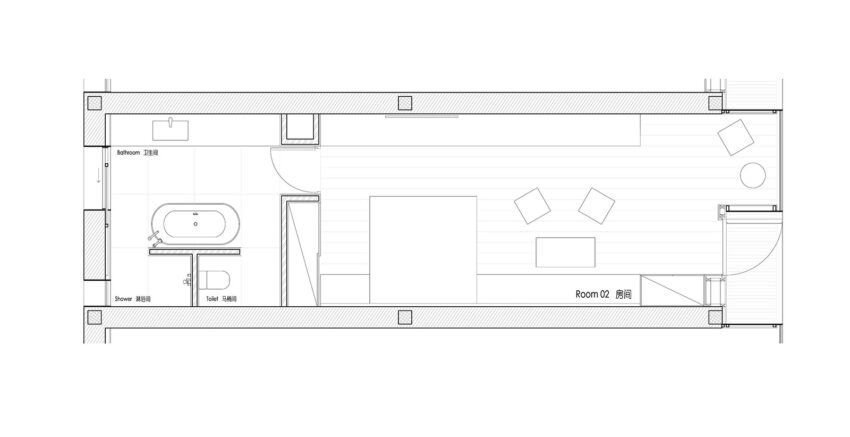
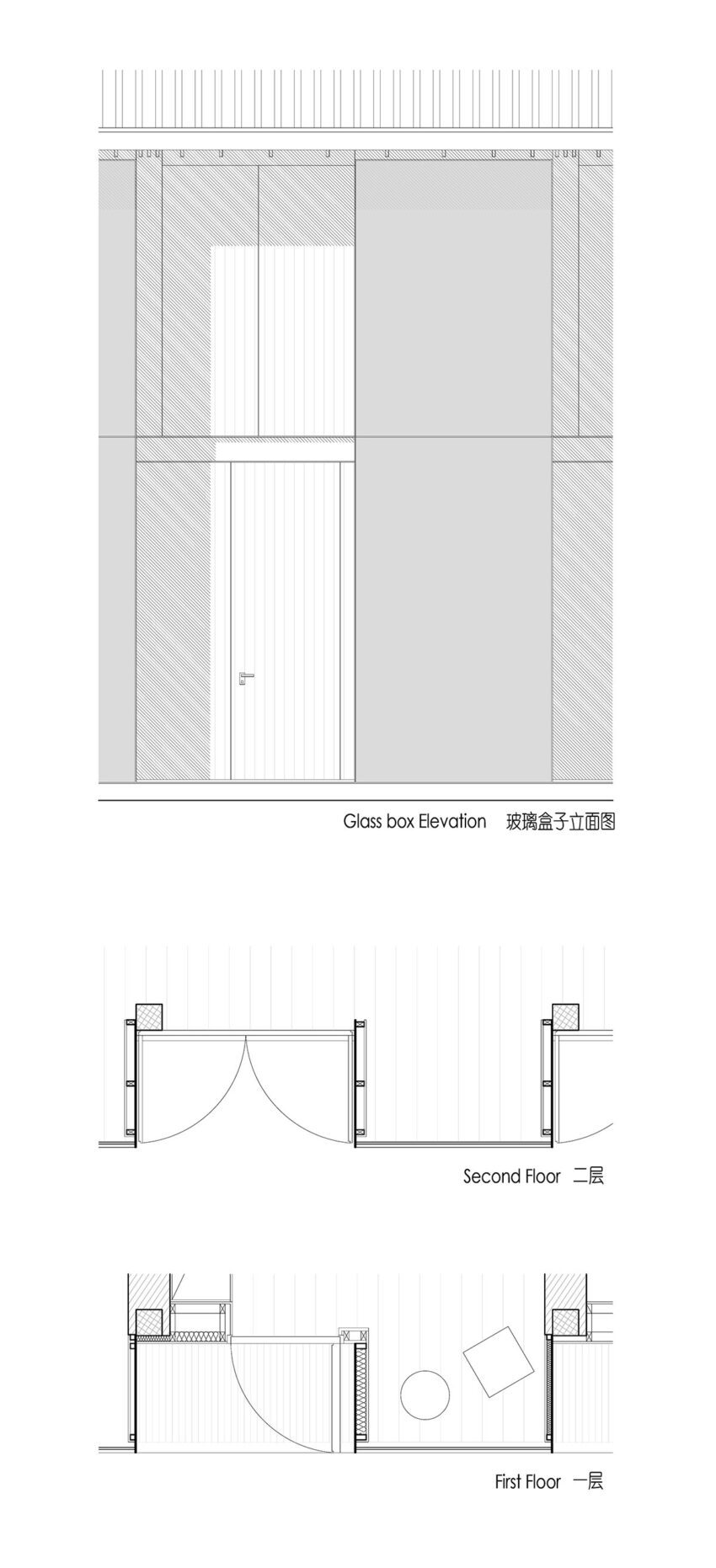
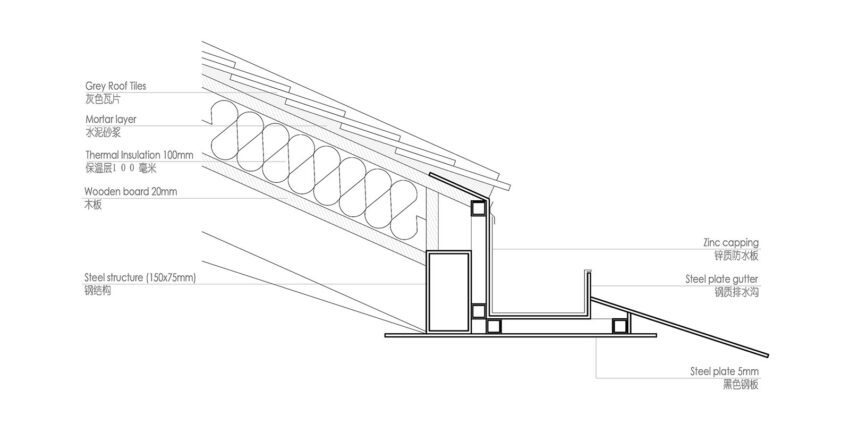
About JSPA Design
JSPA Design is a Beijing-based French design studio established in 2009 that works on architecture, interior, landscape, and product design. Adopting modern design methods and removing common style concepts, they focus on creating evocative architecture that stimulates the human senses by working with light, shade, space, and materiality.
Exploration of architectural expression and reinterpretation of local construction materials allow them to deliver projects that are at the same time unquestionably contemporary but also deeply rooted in their site.
The dialogue between nature and architecture takes significant importance in their work. The design process focuses on how architecture can coexist with its environment or even how nature can impose itself on architecture and enter the building.
- Architects: Johan Sarvan (fr) /Florent Buis (fr)
- Collaborators: Engineering Jianggong
[cite]

